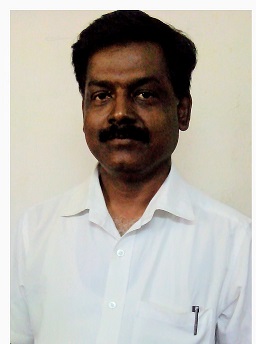-
Online Fees Payment
- Pay Now
Electrical and Electronics Engineering
- Overview
- Activities
- Achievements
- Laboratories
- R&D Activities
- Result Analysis
- Placements
- Teaching/NonTeaching Faculty
Overview
About The Department: (6 to 8 lines. Year of starting, approved intake, AICTE approval, accreditation, major changes/milestones, etc)
- Year of Starting : UG-1957 PG-2003
- AICTE approval : UG-1957 PG-2003
- approved intake : UG-60 PG-25
- accreditation : UG-07/11/2008 to 09/11/2008
Department Vision
To be an excellent centre for imparting quality education, research and technological services in Electrical & Electronics Engineering to meet the needs of society with credibility, integrity and ethical standards.
Department Mission:
Mission of the Department is;
- M1:To facilitate the students with a supportive environment to acquire the basic skills in Electrical & Electronics Engineering & Technology by adopting effective teaching learning processes.
- M2: To emphasize and support the industry and institute relationship aiming at developing entrepreneurs who contribute to social and rural development.
- M3: To cultivate a self-learning attitude and professional ethics to contribute to research and developmental activities in the areas of Electrical & Electronics Engineering.
Program Education Objectives (PEOs)
Program Educational Objectives (PEOs) are broad statements that describe the career and professional accomplishments that the program is preparing graduates to achieve. The PEOs are;
- PEO1: Professionalism : Graduates of the Program will be able to apply their analytical and professional knowledge to take on higher responsibilities in industry/government organizations and diverse fields of Electrical & Electronics Engineering.
- PEO2: Core competence & career Growth: Graduates of the program will acquire capability to apply their technical knowledge of Electrical and Electronics Engineering to pursue higher education and research.
- PEO3: Life Long Value Based Learning: Graduates of the program will continue to engage in lifelong learning, career enhancement and adapt to changing professional and societal needs with ethical values
Program Specific Outcomes (PSO)
- PSO1: (Technical Problem Solving): Identify, formulate, design and investigate engineering problems of electrical circuits, control systems, electrical machines, drives, power electronic systems and power system.
- PSO2: (Modern Tools & Lifelong Learning): Use modern engineering hardware and software tools related to electrical engineering to engage in life-long learning and to solve problems in multidisciplinary and diverse environments.
- PSO3: (Societal Impact & Ethics): Understand and clearly communicate the effects of engineering solutions on society and environment with a commitment to teamwork and adherence to professional ethics.
Programs Offered
B.E. in Electrical and Electronics Engineering
M.Tech.in Power Systems
M.Sc.(Engineering) by Research
Ph.D Programme
Activities
- Training Programs Conducted for Students (during last five years)
- FDP/STTP/Seminar/Webinar/Conference Conducted (during last five years)
| SI. No. | Date | Title | Name of Resource Person |
|---|---|---|---|
| 1 | 14-01-2023 | Innovate and Compete: Participating in Hackathons and Innovation Challenges |
|
| 2 | 10-02-2023 to 11-02-2023 | Stability Under Stress: Investigating Power System Stability Issues |
|
| 3 | 12-03-2022 | Seminar on “Gate Awareness and public sector job opportunities” |
|
| 4 | 22-07-2022 to 23-07-2022 | Integration of renewable energy with Power Grids |
|
| 5 | 30-12-2021 to 31-12-2021 | Navigating Your Future: Career Paths in Electrical Engineering |
|
| 6 | 17-08-2021 To 23-08-2021 | Workshop on Python Programming |
|
| 7 | 27-03-2021 | One day seminar on Innovate and Succeed: Career Planning for Electrical Engineers |
|
| 8 | 08-10-2021 to 09-10-2021 | Efficiency Quest: Investigating Optimization Techniques for Power Converters |
|
| 9 | 19-09-2020 | Solar Solutions: Transforming Rooftops into Powerhouses |
|
| 10 | 11-12-2020 to 12-12-2020 | A seminar on Electric Vehicles |
|
- Department Forum Activities
- Department Achievements (During the last 5 years)
- Faculty Achievements (at State, National and International Level During last 5 Year)
- Department organized
| SI. No. | Date | Title | Co-ordinated by |
|---|---|---|---|
| 1 | 07/4/2017 to 08/4/2017 | Two days hands on training on “programmable logic controllers” |
|
| 2 | 30/03/2019 | One day work shop on “Electrical Vehicle Challenges and Opportunities |
|
| 3 | 04 /10/2021 | One day ISTE student chapter work shop on “Advances in Nano-technology” |
|
| 4 | 2017 | VGST sponsored project for phase-one under the title “Establishing the facility for High Voltage Test Techniques Lab”, (GRD-132) completed in the year |
|
- The VGST sponsored project (GRD 124) for the title “Establishing the facility for project Lab” during the year 2014-2022, under phase-I and Phase –II.
- The project was jointly completed by the Department of Electrical and Electronics Engineering and Department of Electronics and Instrumentation Engg.
Students Achievements (at University level, State, National and International Level during last 5 years, Ranks obtained during last five years-in the form of table)
Rank holders
| Sl. No. | Name of the students | Rank Obtained | UG/PG | Year |
|---|---|---|---|---|
| 1 | Pooja M | First | M.Tech | 2022-23 |
| 2 | Renuka M | Second | M.Tech | 2021-22 |
| 3 | Kavashree | Second | M.Tech | 2020-21 |
| 4 | Savitha H.T | First | M.Tech | 2020-21 |
| 5 | Priya M.B. | First | M.Tech | 2019-20 |
The project entitled “Charging Unit of Hybrid Electric Vehicle” was sponsored by the Karnataka State Council for Science and Technology (KSCST) during the year 2019-20. The project was guided by :
Sri. C.R. Sharadaprasad and the students were
- Md. Yaseen,
- Kavya K H,
- Keerthi J and
- Laxmi R Patil
National and International Level Sports
| Sl. No. | Name of the students | Sports Category | UG/PG | Year |
|---|---|---|---|---|
| 1 | Pavan Kumar | Power Lifting | UG | 2023 |
| 2 | Deekshith Raju | 7th GFI National Grappling Championship | UG | 2024 |
Laboratories in Electrical and Electronics Engineering Department
Important equipments
- Transformer with different ratings like 2.5 KVA, 4 KVA, 5 KVA,
- Synchronous M/C,
- Auto Transformer
- 3φ & 1φ transformer *Analog meters and *Tachometers etc.,
Safety Measures
General rules of conduct in laboratories are displayed specific safety rules for students displayed first aid box fire extinguisher I kept in the laboratory well trained technical supporting staff avoiding the sue of damaged equipment’s and provides needful equipment and components good earthing computers network system and electrical equipment’s are well protected by providing good earthing at the base of the building periodical servicing of the lab equipment’s maintain a clean and organized laboratory appropriate storage areas firewall security to web access is provided CCTV surveillance all the laboratories and corridors are well protected with cameras in order to monitor activates inside and outside the laboratory 24*7 display of dos and don’ts for the students

Important equipments
- 3 φ squirrel cage Induction motor
- 3φ slipring induction motor,
- 1φ induction motor, *Motor-Generator set,
- DC series motor, *Tachometer and
- Analog meters
Safety Measures
General rules of conduct in laboratories are displayed specific safety rules for students displayed first aid box fire extinguisher I kept in the laboratory well trained technical supporting staff avoiding the sue of damaged equipment’s and provides needful equipment and components good earthing computers network system and electrical equipment’s are well protected by providing good earthing at the base of the building periodical servicing of the lab equipment’s maintain a clean and organized laboratory appropriate storage areas firewall security to web access is provided CCTV surveillance all the laboratories and corridors are well protected with cameras in order to monitor activates inside and outside the laboratory 24*7 display of dos and don’ts for the students

Important equipments
- Rheostat,
- Auto transformer,
- Analog meters
Safety Measures
General rules of conduct in laboratories are displayed specific safety rules for students displayed first aid box fire extinguisher I kept in the laboratory well trained technical supporting staff avoiding the sue of damaged equipment’s and provides needful equipment and components good earthing computers network system and electrical equipment’s are well protected by providing good earthing at the base of the building periodical servicing of the lab equipment’s maintain a clean and organized laboratory appropriate storage areas firewall security to web access is provided CCTV surveillance all the laboratories and corridors are well protected with cameras in order to monitor activates inside and outside the laboratory 24*7 display of dos and don’ts for the students

Important equipments
- HVAC (High Voltage Testing Transformer) test setup : Single-Phase, 200/100 kV 5 kVA with 50mA Secondary Current
- HVDC (High Voltage Testing Transformer) test setup : 100 kV, Rectifiers: 100 PIV, PIC: A
- HVAC Pollution Testing Transformer test setup : Single-Phase, 400/60 kV, 60 kVA,1A Sec .Current
Safety Measures
General rules of conduct in laboratories are displayed specific safety rules for students displayed first aid box fire extinguisher I kept in the laboratory well trained technical supporting staff avoiding the sue of damaged equipment’s and provides needful equipment and components good earthing computers network system and electrical equipment’s are well protected by providing good earthing at the base of the building periodical servicing of the lab equipment’s maintain a clean and organized laboratory appropriate storage areas firewall security to web access is provided CCTV surveillance all the laboratories and corridors are well protected with cameras in order to monitor activates inside and outside the laboratory 24*7 display of dos and don’ts for the students

Important equipments
- Digital storage oscilloscope
- Shunt motor,
- UJT relaxation oscillator module,
- Digital & Analog tachometer,
- Dual channel power scope
- stabilized power supply 30V,10A
- CRO
- Signal generators
Safety Measures
General rules of conduct in laboratories are displayed specific safety rules for students displayed first aid box fire extinguisher I kept in the laboratory well trained technical supporting staff avoiding the sue of damaged equipment’s and provides needful equipment and components good earthing computers network system and electrical equipment’s are well protected by providing good earthing at the base of the building periodical servicing of the lab equipment’s maintain a clean and organized laboratory appropriate storage areas firewall security to web access is provided CCTV surveillance all the laboratories and corridors are well protected with cameras in order to monitor activates inside and outside the laboratory 24*7 display of dos and don’ts for the students

Important equipments
- Regulated Dual DC power supply LD320
- Signal Generator
- Digital IC trainer DT 2007
- Dual trace oscilloscope,
- Auto transformer
Safety Measures
General rules of conduct in laboratories are displayed specific safety rules for students displayed first aid box fire extinguisher I kept in the laboratory well trained technical supporting staff avoiding the sue of damaged equipment’s and provides needful equipment and components good earthing computers network system and electrical equipment’s are well protected by providing good earthing at the base of the building periodical servicing of the lab equipment’s maintain a clean and organized laboratory appropriate storage areas firewall security to web access is provided CCTV surveillance all the laboratories and corridors are well protected with cameras in order to monitor activates inside and outside the laboratory 24*7 display of dos and don’ts for the students

Important equipment
- Speed torque character ties of DC servo motor
- Speed torque character ties of two phase AC servo motor
- Synchronous transmitter receiver trainer kit
Safety Measures
General rules of conduct in laboratories are displayed specific safety rules for students displayed first aid box fire extinguisher I kept in the laboratory well trained technical supporting staff avoiding the sue of damaged equipment’s and provides needful equipment and components good earthing computers network system and electrical equipment’s are well protected by providing good earthing at the base of the building periodical servicing of the lab equipment’s maintain a clean and organized laboratory appropriate storage areas firewall security to web access is provided CCTV surveillance all the laboratories and corridors are well protected with cameras in order to monitor activates inside and outside the laboratory 24*7 display of dos and don’ts for the students

- MI Power software for Power Systems Simulation Lab
- Python programming
- Kiel software for Microcontroller Lab
Safety Measures
General rules of conduct in laboratories are displayed specific safety rules for students displayed first aid box fire extinguisher I kept in the laboratory well trained technical supporting staff avoiding the sue of damaged equipment’s and provides needful equipment and components good earthing computers network system and electrical equipment’s are well protected by providing good earthing at the base of the building periodical servicing of the lab equipment’s maintain a clean and organized laboratory appropriate storage areas firewall security to web access is provided CCTV surveillance all the laboratories and corridors are well protected with cameras in order to monitor activates inside and outside the laboratory 24*7 display of dos and don’ts for the students

- MI Power software for Power Systems Simulation Lab
- PSCILAB
- MATLAB for DSP and power system power converter Lab
Safety Measures
General rules of conduct in laboratories are displayed specific safety rules for students displayed first aid box fire extinguisher I kept in the laboratory well trained technical supporting staff avoiding the sue of damaged equipment’s and provides needful equipment and components good earthing computers network system and electrical equipment’s are well protected by providing good earthing at the base of the building periodical servicing of the lab equipment’s maintain a clean and organized laboratory appropriate storage areas firewall security to web access is provided CCTV surveillance all the laboratories and corridors are well protected with cameras in order to monitor activates inside and outside the laboratory 24*7 display of dos and don’ts for the students

- Final year and pre final year Projects
- mini Projects
- Seminars
- Internship seminars
Safety Measures
General rules of conduct in laboratories are displayed specific safety rules for students displayed first aid box fire extinguisher I kept in the laboratory well trained technical supporting staff avoiding the sue of damaged equipment’s and provides needful equipment and components good earthing computers network system and electrical equipment’s are well protected by providing good earthing at the base of the building periodical servicing of the lab equipment’s maintain a clean and organized laboratory appropriate storage areas firewall security to web access is provided CCTV surveillance all the laboratories and corridors are well protected with cameras in order to monitor activates inside and outside the laboratory 24*7 display of dos and don’ts for the students .
Research and Development Activities
| Sl. No. | Name of the Research Supervisor | Area of Research | No. of Research Publications | No. of Research Scholars (ongoing) |
No. of Research Scholars (completed) |
1 | Dr. H.N. Ashoka | Pattern recognition Artificial Intelligence | 5 | 2 | -- |
|---|---|---|---|---|---|
| 2 | Dr. H.C. Mouneswarachar | Energy Systems | 5 | 1 | --L |
| 3 | Dr. K.S. Aprameya | Digital Electronics | 5 | 1 | 3 |
| 4 | Dr. Basavaraja Banakara | Energy Systems | 10 | 5 | 13 |
| 5 | Dr. H R Sudarshan Reddy | Power System Engineering | 10 | 5 | 6 |
| 6 | Dr. Ashok Kusagur | Power Electronics | 8 | -- | 7 |
| Name of the faculty | Name of the Research Scholar | Year of Ph.D awarded | University |
|---|---|---|---|
| Dr. K.S.Aprameya | Sri. R.D. Sathyanarayana | 2023 | VTU |
| Smt. Mamatha B.N. | Not completed | VTU | |
| Smt G. Padmaja Devi | 2019 | VTU | |
| Smt. V. Geetha | 2020 | VTU | |
| Dr. Basavaraj Banakar | Sri. K. Ramakrishna | 2023 | JNTUH |
| Sri. Mohammed Abdul | 2023 | GITAM | |
| Sri. G. Sathish Kumar | 2022 | JNTUH | |
| Sri. J Sridhar | 2023 | GITAM | |
| Sri. Manohar B.S | Not completed | VTU | |
| Hemalatha | Not completed | ANU | |
| Sri. K. Sathish Kumar | Not completed | JNTUH | |
| Neetha H.M | Not completed | VTU | |
| Smt. Sujatha Eresimi | Not completed | VTU | |
| Sri. Rajendar | 2020 | JNTUH | |
| Sri. Sharan Reddy | 2020 | JNTUH | |
| Sri.M. Sharanya | 2020 | JNTUH | |
| P. Marimuthu | 2017 | JNTUH | |
| K.B. Siddesh | 2021 | VTU | |
| Sri. P. Vasaudeva Naidu | 2017 | ANU | |
| Sri. Jagadeesh Kumar | 2020 | JNTU | |
| Sri. J. Ravikumar | 2019 | ANU | |
| G.G. Rajashekhar | 2021 | ANU | |
| Dr. H.R. Sudarshana Reddy | Sri. B.N. Veerappa | 2019 | Kuvempu University |
| Sri. Shridhar Muirthy | 2017 | Kuvempu University | |
| Sri. Maheshwarappa | 2021 | VTU | |
| Sri. Hanumesh | 2020 | VTU | |
| Sri. Sanjeev Kumar | 2019 | VTU | |
| Praveen Kumar C | Not completed | VTU | |
| Rekha G Padaki | Not completed | VTU | |
| Chaitra A.S | Not completed | VTU | |
| Pasala Naresh | Not completed | VTU | |
| Smt. Sarala J | Not completed | VTU | |
| Kiran M.R | Not completed | VTU | |
| Dr. Ashok Kusagur | Sri. Veeresh H | 2020 | VTU |
| Sri. Manjunath T. G | 2019 | VTU | |
| Sr. Aravind Kumar G | 2021 | VTU | |
| Sri. Rajashekhar S | 2019 | VTU | |
| Sri. Basavaraj M | 2019 | VTU | |
| Sri. Fazlulla Khan | 2020 | VTU | |
| Smt. Preetha P.S | 2024 | VTU | |
| Dr. H.C. Mouneswarachar | Priya M.B. | Not completed | VTU |
| Dr. H.N. Ashoka | Smt. Vanishree G.N. | Not completed | VTU |
| Venkatesh M | Not completed | VTU |
STATISTICS OF THE 8th SEM DEGREE RESULTS-2022-2023
| Sl.No. | Total Students Attended | Total Students Passed | Percentage |
|---|---|---|---|
| 1 | 59 | 57 | 96% |
TOPPERS DETAILS
| Sl.No. | Name of the Student | USN | Sem | Percentage | Toppers |
|---|---|---|---|---|---|
| 1 | Sanchitha B.S | 4UB19EE048 | 8th | 9.51 | I |
| 2 | Sridevi K.R. | 4UB19EE052 | 8th | 9.50 | II |
| 3 | Mohammed Noushad | 4UB19EE026 | 8th | 9.28 | III |
STATISTICS OF THE 8th SEM DEGREE RESULTS-2021-2022
| Sl.No. | Total Students Attended | Total Students Passed | Percentage |
|---|---|---|---|
| 1 | 58 | 57 | 98% |
TOPPERS DETAILS
| Sl.No. | Name of the Student | USN | Sem | Percentage | Toppers |
|---|---|---|---|---|---|
| 1 | Sumalata Bidarkundi | 4UB18EE050 | 8th | 9.51 | I |
| 2 | Ashwini C.K | 4UB17EE031 | 8th | 9.50 | II |
| 3 | Sindhu M | 4UB17EE051 | 8th | 9.50 | III |
STATISTICS OF THE 8th SEM DEGREE RESULTS-2020-2021
| Sl.No. | Total Students Attended | Total Students Passed | Percentage |
|---|---|---|---|
| 1 | 68 | 67 | 99% |
TOPPERS DETAILS
| Sl.No. | Name of the Student | USN | Sem | Percentage | Toppers |
|---|---|---|---|---|---|
| 1 | Harshitha M Gujjar | 4UB17EE017 | 8th | 9.45 | I |
| 2 | Pooja M | 4UB17EE031 | 8th | 9.45 | II |
| 3 | Suma | 4UB17EE051 | 8th | 9.30 | III |
STATISTICS OF THE 8th SEM DEGREE RESULTS-2019-2020
| Sl.No. | Total Students Attended | Total Students Passed | Percentage |
|---|---|---|---|
| 1 | 71 | 69 | 97% |
TOPPERS DETAILS
| Sl.No. | Name of the Student | USN | Sem | Percentage | Toppers |
|---|---|---|---|---|---|
| 1 | Usha H M | 4UB16EE050 | 8th | 87 | I |
| 2 | Pavankumar H B | 4UB16EE029 | 8th | 85.57 | II |
| 3 | Deepa S K | 4UB16EE018 | 8th | 85 | III |
| 4 | Sushma N | 4UB16EE047 | 8th | 85 | III |
Placement Details
Year
No. of Students appeared in final year examination
No. of Students Graduated out of appeared in final year examination (G) Students
Z= (No. of Students Placed+ Selected for higher studies +opted Entrepreneurship)
2022-23
65
63
22
2021-22
68
66
42
2020-21
71
71
30
| Year | No. of Students appeared in final year examination | No. of Students Graduated out of appeared in final year examination (G) Students | Z= (No. of Students Placed+ Selected for higher studies +opted Entrepreneurship) |
|---|---|---|---|
| 2022-23 | 65 | 63 | 22 |
| 2021-22 | 68 | 66 | 42 |
| 2020-21 | 71 | 71 | 30 |
Teaching Faculty Details
| Image | Name | Designation | View Profile |
 |
Dr.H.C.Mouneshwarchar |
Chairperson and Professor | PROFILE |
 |
Dr.K.S.Aprameya |
Professor | PROFILE |
 |
Dr.H.R.Sudarshan Reddy |
Professor | PROFILE |
 |
Dr. Banakara Basavaraja |
Professor | PROFILE |
 |
Dr.H.N.Ashoka |
Professor | PROFILE |
 |
Dr.Ashoka Kusagur |
Associate Professor | PROFILE |
 |
Sri.C.R.Sharada Prasad |
Associate Professor | PROFILE |
 |
Ms.Rekha G.Padaki |
Assistant Professor | PROFILE |
 |
Pallavi B. |
Assistant Professor (Ad-hoc) | PROFILE |
 |
Mamatha B. N. |
Assistant Professor (Ad-hoc) | PROFILE |
 |
Venkatesh M. |
Assistant Professor (Ad-hoc) | PROFILE |
 |
Priyanka S. M. |
Assistant Professor (Ad-hoc) | PROFILE |
Non-Teaching Staff Details
| Name | Designation |
|---|---|
| Sri. R P Shashidhara | Foreman |
| Sri P R Suma | Instructor |
| Sri. Suresh Chavadi | Asst.Instructor |
| Sri. O M Nagarajappa | Asst.Instructor |